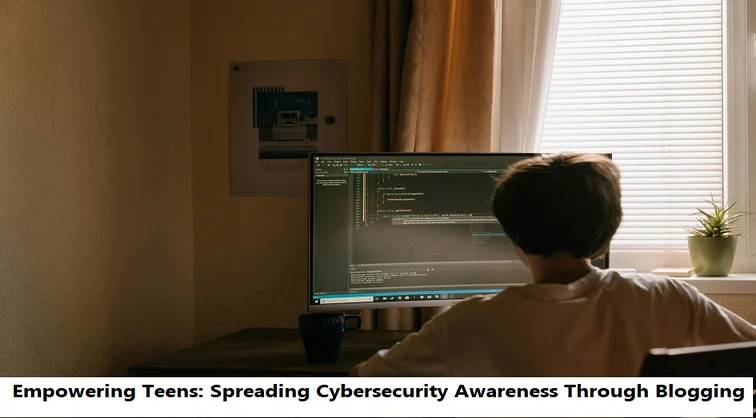+1 845 259 2974 (11 a.m to 7 p.m CST)
Empowering Teens: Spreading Cybersecurity Awareness Through Blogging

As cyber threats continue to evolve and become more intricate, it's vital to educate teens about the significance of cybersecurity and provide them with the knowledge and skills needed to protect themselves online. One effective method to achieve this is through blogging. By establishing a blog focused on disseminating cybersecurity awareness to teens, you can deliver valuable information, practical advice, and real-life examples, aiding them in navigating the digital landscape securely and responsibly.
Understanding the Audience
Before diving into creating content, it's essential to understand the audience you're targeting. Teenagers have grown up in a digital age and are often tech-savvy, but they may not fully grasp the potential consequences of their online activities. Tailor your blog content to resonate with teens, using language and examples that are relevant and relatable to their experiences. Work with a white label link building agency to increase your audience reach and ensure that you are able to connect with as many people as you want to.
Covering Relevant Topics
When it comes to cybersecurity awareness for teens, there are several key topics to cover. These may include online privacy, social media safety, password security, phishing scams, cyberbullying, and the responsible use of technology. Break down complex concepts into digestible, easy-to-understand explanations, and provide practical tips and advice that teens can implement in their daily online interactions.
Engaging Content Formats
To capture and maintain the attention of teenage readers, consider using many different types of content formats, such as articles, infographics, videos, quizzes, and interactive tutorials. Mix up your content to keep it engaging and dynamic, and incorporate multimedia elements to appeal to different learning styles. Encourage reader participation through polls, surveys, and discussion questions to foster interaction and engagement.
Sharing Real-Life Examples
Help teens understand the real-world implications of cybersecurity threats by sharing relevant and relatable examples. Highlight news stories, case studies, and personal anecdotes that illustrate the consequences of poor cybersecurity practices, such as identity theft, financial fraud, or reputational damage. By making cybersecurity issues tangible and concrete, you can underscore the importance of staying vigilant and proactive online.
Empowering Teens to Take Action:
Go beyond simply raising awareness; empower teenagers to take proactive steps to safeguard themselves online. Offer step-by-step guidance on implementing cybersecurity best practices, including creating robust passwords, enabling two-factor authentication, adjusting privacy settings across social media platforms, and identifying and steering clear phishing scams. Additionally, provide recommendations for trustworthy resources and tools that teenagers can utilize to bolster their online security measures.
Encouraging Open Dialogue
Foster an open and non-judgmental dialogue about cybersecurity with your teen audience. Encourage them to ask questions, share their concerns, and seek advice online navigating challenging situations. Create a supportive and inclusive community where teens feel comfortable discussing cybersecurity issues with their peers and seeking guidance from trusted adults.
Collaborating with Experts
Consider collaborating with cybersecurity experts, educators, and organizations to provide authoritative insights and guidance on your blog. Invite guest contributors to share their expertise, perspectives, and practical tips for staying safe online. By leveraging the knowledge and experience of industry professionals, you can enhance the credibility and value of your blog content.
Promoting Your Blog
Finally, promote your cybersecurity awareness blog through social media, online forums, school networks, and other relevant channels to reach your target audience of teens. Encourage teens to share your content with their friends and peers to amplify its impact and spread awareness within their communities.
Conclusion
Spreading cybersecurity awareness for teens through blogging is a powerful way to educate, empower, and protect the next generation of digital citizens. By creating engaging and informative content, sharing real-life examples, encouraging open dialogue, and collaborating with experts, you can help teens develop the knowledge, skills, and mindset to navigate the online world safely and responsibly.



















